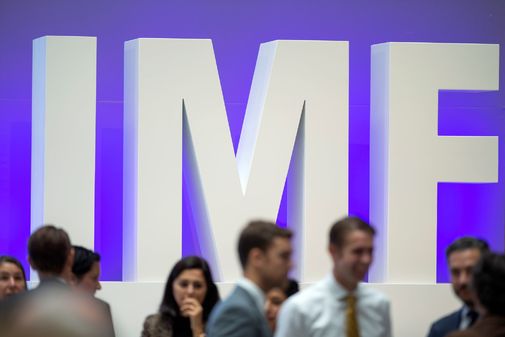- Growth: The IMF anticipates a sharp global slowdown and believes that the commercial war will cost 600,000 million in 2020
In June, the Japanese news agency Nikkei - owner of the Financial Times newspaper - reported that Apple had asked its suppliers what economic implications it would have for them to move between 15% and 30% of their production from China to other countries in the Southeast Asian to avoid the extraordinary tariffs that the Trump administration is imposing on the largest economy in Asia.
Nikkei did not explain what the answer had been. But, in reality, the companies that sell to Apple had already answered by way of the facts: the Taiwanese company Inventec, which invoices 22,000 million euros and makes from components for Apple's famous ipod headphones to Fitbit wristbands, has He has already moved part of his assembly line to Malaysia, and plans to bring Taiwan the manufacture of laptops for the US market. His rival, Compal, has built a plant in the Taiwanese city of Taoyuan to transfer production to China that is now making high-end computers for the United States. Quanta Computer has also bought a factory in Taoyuan to produce from there instead of China.
The stories of these three Taiwanese companies are reduced by a figure: 0.8%. That means 698,000 million dollars, that is, 633,000 million euros. It is more than the Swiss economy and, according to the International Monetary Fund (IMF), it will cost the US-China trade war to the world economy next year. As the IMF chief economist, Rita Gopinath, has described today in the presentation of the semi-annual report of the Perspectives of the World Economy institution, it is "a synchronized slowdown". The organization expects global growth of 3% this year , in what, as Gopinath recalled, is "its lowest level since the financial crisis." By 2020, it estimates a "precarious" reactivation, with a growth of 3.2%.
The keys to the slowdown have to do with "an extremely weak trade and industrial activity." And the revival is essentially because a number of emerging countries that have seen their economies pulverized in 2019 - Argentina, Iran, and Turkey - will begin to lift their heads, while others in the same group that have had a bad year - Mexico, India , Brazil, Russia, and Saudi Arabia - they will also experience some revival.
There ends the optimism of the Fund. Three of the four largest economies in the world - the US, China, and Japan - "will foreseeably slow down further in 2020," according to Gopinath. Only the eurozone will increase, according to the IMF, its growth, but in an anemic way, from 1.2% to 1.4%. And yet, we must not forget what the chief economist of the Fund called "the risks of Brexit".
The acceleration of the eurozone is mainly due to the clear increase in Germany's growth, from 0.5% to 1.2%. In the other countries, the tonic is stagnation or deceleration. And Spain is no exception. The Fund reduces by one tenth for this year and another for which the expectation of Spanish growth comes until leaving them at 2.2% and 1.8%. Even with that slowdown, Spain continues to be the second largest industrialized economy in 2019 and 2020, only behind the United States.
Thus, Spain loses four tenths of growth every year, and goes from 2.6% in 2018 to 2.2% in 2019 and 1.8% in 2020, in what the report describes as "gradual slowdown" that will practically eliminate job creation, as the report provides for an unemployment rate of 13.9% this year and 13.2% in 2020. This despite an expansive fiscal policy that, although the IMF does not openly criticize, does censor in a manner implicit in claiming France and Spain to build "fiscal cushions", although it does not develop that idea, which comes at a time when what is left over in the world is liquidity.
The Fund is more optimistic than the private sector - BBVA cut its growth expectations yesterday to 1.9% this year and 1.6% next year - and is close to government projections, which point to a 2.2% growth in 2020 and 1.9% in 2020. But the Pedro Sánchez Executive is predictably going to lower these figures this week, making the IMF the most optimistic institution with respect to Spain.
According to the criteria of The Trust Project
Know more- IMF
- Macroeconomy
According to the Bank of Spain, this has been the slowdown in employment: job creation has collapsed by half since May
Tourism The arrival of foreign tourists to Spain falls in August but maintains annual growth
ACCORDING TO THE INEL economy slowed in the second quarter and is already growing at the slowest pace since the beginning of the recovery

